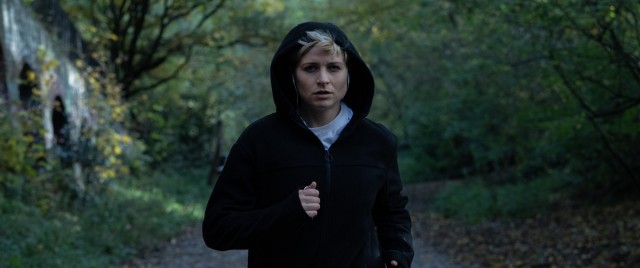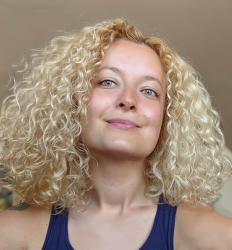Half a decade since the #MeToo movement spread across the globe, less than a year since the kidnapping and murder of Sarah Everard, and just days after a female jogger was raped in my local park, I find myself writing about violence against women once again. Although in the aftermath of these horrific acts of violence there’s been an outpour of stories about being followed, harassed and assaulted, uniting women across the world in voicing our fear, the truth is that this fear has always been the supporting character in our narratives. It dictates where we go, what we do and when it’s safe to leave our homes. A character as old as humankind and yet as prominent today as it has ever been, isn’t it time we rewrote our stories by changing the narrative around female safety?
RUN, written and directed by Ruth Greenberg, funded by Film4 and BFI NETWORK and BIFA-longlisted, raises similar questions. Masterfully infused with stomach-clenching moments throughout (which viewers could find triggering), the 11-minute drama is Greenberg’s response to what happens to countless girls and women every single day. By not shying away from this brutal and unforgiving reality, the director, and her largely female crew have crafted a visceral and distressing, yet hugely significant and timely piece of filmmaking, the effects of which will linger long after the credits fade away and hopefully inspire you to donate to the Just Giving page they set up for the Woman’s Trust.

Niamh Algar (Raised by Wolves, Censor) stars as the jogger being stalked in RUN.
The film opens with a close-up shot of a headphone cable, brushing against the bare shoulder of a woman (Niamh Algar) as she prepares for her morning run. Jogging through London to the beat of her playlist, she confronts everyday microaggressions and potential threats until she encounters a man staring straight at her, on a track through the woods. Determined not to let her fear take control, she runs past him only to face him again later on. This time alone and with nowhere to go.
Without any dialogue, RUN is instead scored with an upbeat remix of electronic tunes, almost completely drowning out the natural cityscape sounds, creating the illusion of a subdued and safe environment. Harsh, rhythmic cuts mark the passing of time during this sacred morning ritual, as an increasingly disquieting atmosphere settles over the anonymous character and her audience.
“I wanted to express the rage I feel, and see in others, as we understand how pervasively women are made to feel unsafe”
“I wanted to make an intensely subjective film about the experience of being a woman who is constantly navigating threats as she goes about an everyday activity” – Greenberg shared with S/W – “It was meant to be a film that represented women, or any person, who has to minute by minute perform risk assessments. The final escalation (without giving spoilers) may not be what happens to most women, but it is something we have all thought about, in moments of fear, so it is still our reality. And finally, I wanted to express the rage I feel, and see in others, as we understand how pervasively women are made to feel unsafe through the instances of actual or imagined violence that are perpetrated against us. The idea was to ask the question: what do we do now?”
Greenberg has observed this risk assessment with chilling accuracy. The way the female character pauses her music when she feels threatened, her obvious relief when she sees other people are present, even the way she carefully arranges the keys between her fingers. These are feelings I have felt and cautionary measures I have taken on countless occasions, and I have no doubt that most women will also relate. Fear is relentlessly present everywhere I go, and accompanying it is the rage I feel in response to the fear – every time I decide to take the long way around rather than go through the park, every time I cross the street when I don’t need to and every time I look back over my shoulder. All because of the burning question in the back of my mind – what if I don’t?
Interweaving these subtle, yet petrifying moments into the deceptively simple narrative, without the aid of dialogue or supporting characters, is no mean feat, and the result is breathtaking. In every sense of the word. Greenberg has established herself as a filmmaker to watch and admire, by creating an emotionally charged masterpiece, without a single false note in it. And whilst it might be tough to watch, RUN also holds up to the light the possibility of rewriting our stories and maybe even turning the fear into something else just by recognising it.
***
Alongside using the film to raise awareness, Greenberg and her producers Helen Gladders and Ivana MacKinnon are also hoping to use the release of RUN to raise money for a life-changing organisation that needs funding. If any of the themes of Greenberg’s powerful short spoke to you, its creators have set up a Just Giving page for the Woman’s Trust. If you want to support women affected by violence you can find out more here

 Serafima Serafimova
Serafima Serafimova